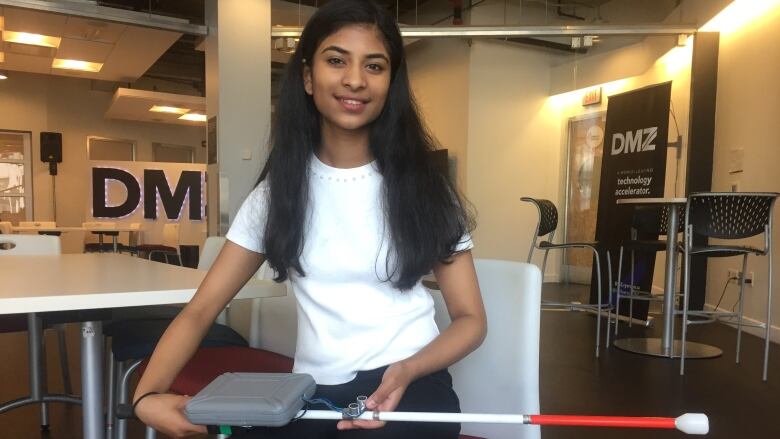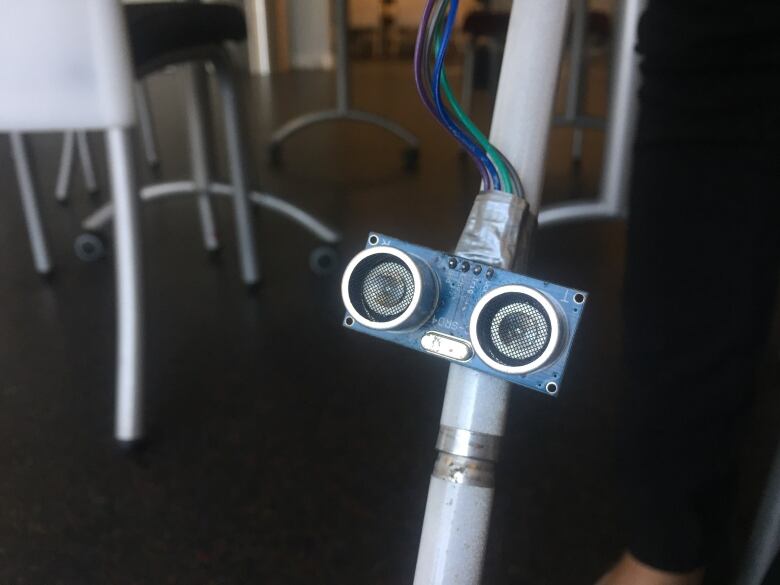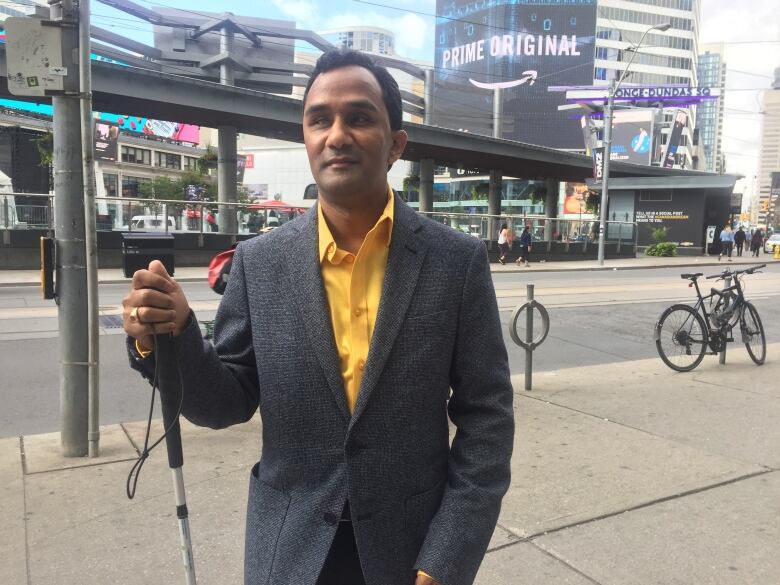How a 15-year-old entrepreneur is reinventing the standard white cane with smart technology
The prototype includes GPS navigation and ultrasonic proximity sensors

For Riya Karumanchi, the journey from high school student to the founder and CEO of an accessible technology company started after a chance encounter at a friend's house.
Last year, Karumanchi met her friend's visually impaired grandmother for the first timeand watchedher struggle while navigating the home.
She bumped into tables and lamps, Karumanchi remembered, her white cane offering little help identifying objects higher than her knees.
When Karumanchi went home and did some research, she was stunned to find out why.
"I always thought that the white cane had some sort of technology in it to help a person navigate," said the now 15-year-old. "She was just relying on a stick that was never updated."
- 'I get disoriented': Why a system designed to help the visually impaired needs a rethink
- Toronto's cluttered sidewalks 'dangerous' for visually impaired residents
Not long after, Karumanchi started workshopping an idea to help blind people more safely navigate by infusingcutting edge smart technology into the standard white cane.
Her latest prototype features haptic-based GPS navigation, which can vibrate the cane to give a user turn-by-turn directions one buzz for a left turn, two for a right.
It also includes an ultrasonic proximity sensor to alert the user of potentially hazardous objects from knee to head height, a blind spot of the traditional cane.
Karumanchi hopes to install an artificial intelligence-powered camera in a later model, which can describe everyday objects and even recognize people's faces.
"Just improving their accessibility, and allowing them to go from place to place and be empowered to do so," she said of Smart Cane's mission.

$56Kin funding already secured
After spending thesummer developing her company at Ryerson University's business incubator, The DMZ, Karumanchi has raised around $56,000 in initial funding from various investors, including Microsoft.
She's also been leading a team of 11 people working on the project, including engineers and other advisors with MBAs.
Next week, Karumanchi will start grade 10 at White Oaks Secondary in Oakville.
"Seeing Riya do it atthis age, at this time, is great and we're excited about it," said Abdullah Snobar, The DMZ'sexecutive director.
While the product is still in its infancy, the idea has also been enthusiastically received by CNIB, Canada's organization for people with vision impairments.
"I think it's really going to change the way people use [the cane]," said Kevin Shaw, the organization's program manager for entrepreneurship and innovation.

Shaw said there are other companies developing smart technology to assist the visually impaired, but he said Smart Cane is the only one incorporating those innovations into the traditional, and familiar, white cane.
As a cane user for the last 20 years, Shaw agreed that it's time for the device to get a refresh.
"I have noticed some limitations," he said.
What's next?
Later this year, Karumanchi will pitch the idea in a competition with a $1 million top prize.
She's also aiming to build a "minimum viable product" version of the cane by December, which will help prove its feasibility as an actual product, and not just a prototype.
As the company and product continue to progress, CNIB says it will also assist, providing marketing, mentorship and possibly investment.
"Riya is certainly a leader in this space and certainly a future leader that I think we need to keep our eye on," Shaw said.
"We've just got an outpouring of support and it's been really helpful so I'm really excited to actually get the cane into the market from there," Karumanchi added.












_(720p).jpg)


 OFFICIAL HD MUSIC VIDEO.jpg)
.jpg)



























































































